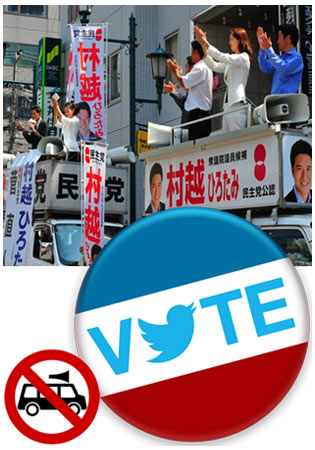One part of Peter’s Unified Theory of Japan™ is that the country follows behind the West socially, taking its cues from the U.S. and Europe only after new ideas have been thoroughly tested. Everything from laws against sekuhara (sexual harassment) in the workplace to allowing people to legally remove brain-dead family members from life support started in the West then filtered over to Japan some years later. Japan’s conservatism is nowhere more prevalent than in its elections, and there are many laws that strictly regulate how elections are managed, including how early a candidate is allowed to sit outside your window in a loudspeaker car shouting I AM YAMADA, I WILL WORK HARD FOR YOU, PLEASE SUPPORT ME ON ELECTION DAY. Newfangled technologies like Twitter, Facebook or even email are strictly forbidden from being used in the weeks before an election, as each communication from a candidate is considered a printed pamphlet, which are also regulated by election rules. Happily, though, it looks like this is finally about to change, thanks to a law allowing use of social media in elections that’s currently being debated in the Japanese Diet. Modernizing Japan’s elections would change the dynamics of politics in favor or younger voters, allowing geriatric politicians with memories of WWII to hopefully fade away more quickly. Last night I caught a TV show on the subject, which carefully explained to viewers how Twitter worked, including explaining the company’s “verified user” program which ensures the person you think is your candidate is really him. With any luck, Japanese elections could enter the 21st century only a decade or so behind the rest of the world.

The ban on Internet use during elections might be ending.














